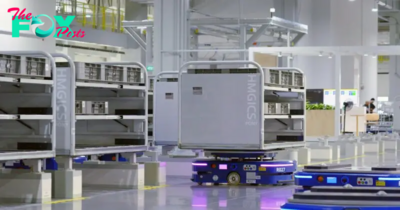Technology
The Fastest-Growing Engineering Fields
Engineering is evolving rapidly, driven by technological advancements and global challenges. According to recent data, the engineering industry is expected to grow at a compound annual growth rate (CAGR) of 4.2% and reach a value of $1,188 billion by 2024, with further expansion to $1,366 billion by 2028.
The demand for specialized engineers is also rising, with sectors like artificial intelligence, renewable energy, and biomedical engineering leading the way.
For instance, environmental and agricultural engineers are expected to grow by 6% by 2032, while fields like geotechnical engineering will expand at a CAGR of 5.3%, reflecting an increasing emphasis on sustainability and infrastructure development. The surge in autonomous systems, smart cities, and quantum technologies further highlights the shifting landscape of modern engineering.
The Diversity Of Engineering Fields: Six Key Specializations
Engineering is a vast and dynamic discipline that encompasses a wide range of fields and engineers types, each designed to address specific challenges in society. From constructing infrastructure to developing cutting-edge Technology, engineers play a vital role in improving the world around us.
This diversity offers many career paths, with each specialization providing its own unique opportunities. Below, we explore six key branches of engineering that are shaping the future across various industries.
Civil Engineering
Civil engineering is one of the oldest and most vital branches of engineering. Civil engineers are responsible for designing, constructing, and maintaining infrastructure, including bridges, roads, water systems, and buildings.
Their work is key for urban development, transportation, and public safety. Civil engineers ensure that structures are not only functional but also sustainable, taking into account environmental factors like climate change and natural disasters.
This field continues to expand as global populations grow, leading to increased demand for new infrastructure and the need to upgrade aging systems. Civil engineers also work on innovative projects such as green buildings and smart cities, which aim to make urban areas more sustainable and efficient.
With urbanization continuing at a rapid pace, civil engineers are more critical than ever in building and maintaining the environments in which we live and work
Mechanical Engineering
Mechanical engineering is one of the most versatile branches of engineering, covering everything from small mechanical devices to large industrial systems.
Mechanical engineers design, develop, and test a wide range of machines and mechanical devices, such as engines, robotics, medical devices, and manufacturing equipment. They apply principles from physics and materials Science to create systems that improve efficiency and functionality.
This field is evolving rapidly with the advancement of automation and robotics. Mechanical engineers are increasingly working with AI and machine learning technologies to design smarter systems, particularly in manufacturing and automotive industries.

The integration of these new technologies is creating exciting opportunities, as mechanical engineers contribute to innovations like autonomous vehicles, renewable energy systems, and industrial automation.
Electrical And Electronics Engineering
Electrical and electronics engineers work with electrical systems and electronic devices, contributing to critical sectors like telecommunications, power generation, and consumer electronics.
This field is integral to modern life, as it touches everything from the energy that powers homes to the smartphones we use daily. Electrical engineers focus on large-scale electrical systems, such as power grids and renewable energy sources, while electronics engineers typically work on smaller devices, including sensors, microchips, and medical equipment.
With the growing focus on renewable energy and smart grids, electrical engineers are at the forefront of developing more efficient and sustainable power systems.
Electronics engineers are key to innovations in fields like medical devices, communication systems, and even aerospace technology. Both fields are set to grow as technology becomes more integrated into daily life and as industries demand more sustainable solutions.
Software Engineering
In the digital age, software engineers are pivotal in designing, developing, and maintaining the software that drives modern industries. This field involves creating applications, systems, and platforms for everything from mobile devices to large-scale business operations.
Software engineers collaborate with data scientists, IT professionals, and other engineers to develop solutions that optimize processes, enhance productivity, and improve user experiences.
The demand for software engineers has skyrocketed due to the increasing reliance on digital infrastructure across all sectors, including healthcare, finance, and retail. With the rise of cloud computing, big data, and artificial intelligence, software engineers are critical to developing applications that leverage these technologies.
The field is evolving to meet the challenges of cybersecurity, data privacy, and the need for real-time processing, ensuring that software remains a pivotal part of technological innovation.
Biomedical Engineering
Biomedical engineering combines engineering principles with medical and biological sciences to develop technologies that improve healthcare. This interdisciplinary field is responsible for designing medical devices, diagnostic tools, and biotechnologies like artificial organs and tissue engineering.
Biomedical engineers work closely with Healthcare professionals to create systems that enhance patient care and medical outcomes.
As Healthcare Technology continues to advance, biomedical engineers are involved in developing wearable medical devices, such as glucose monitors and heart rate trackers, that enable patients to manage their Health in real-time.
Innovations in medical imaging, prosthetics, and regenerative medicine are making biomedical engineering one of the most exciting and fast-growing fields. This branch of engineering is at the forefront of tackling some of the most critical healthcare challenges, such as improving accessibility to advanced medical care and developing solutions for aging populations
Environmental Engineering
Environmental engineering is a critical field dedicated to solving some of the most urgent environmental challenges of our time. Environmental engineers work to develop sustainable solutions for pollution control, waste management, and the design of eco-friendly infrastructure.
They play a pivotal role in ensuring that human activities have minimal negative impact on the environment, whether through the construction of sustainable water treatment facilities or the development of renewable energy systems.
As the world faces increasing pressure from climate change, environmental engineers are key in creating systems that promote sustainability. They are involved in projects that range from cleaning up contaminated sites to designing infrastructure that can withstand the effects of natural disasters.
The growing focus on green Technology and sustainable urban planning is driving demand for professionals in this field, making it one of the most relevant and impactful branches of engineering today.

Wrapping Up
In today’s rapidly changing world, engineers must remain adaptable to emerging technologies and shifting societal needs. As industries continue to prioritize sustainability, innovation, and digitalization, new opportunities are arising for engineers to tackle the challenges of the future.
From enhancing global healthcare to combating climate change, the future of engineering will be defined by those who can apply creative solutions to make a lasting impact.
-

 Technology9h ago
Technology9h agoThere Is a Solution to AI’s Existential Risk Problem
-

 Technology11h ago
Technology11h agoUS pushes to break up Google, calls for Chrome sell-off in major antitrust move | The Express Tribune
-

 Technology15h ago
Technology15h agoPublic health surveillance, from social media to sewage, spots disease outbreaks early to stop them fast
-

 Technology17h ago
Technology17h agoTikTok, PTA host youth safety summit in Pakistan | The Express Tribune
-

 Technology20h ago
Technology20h agoWhy a Technocracy Fails Young People
-

 Technology1d ago
Technology1d agoTransplanting insulin-making cells to treat Type 1 diabetes is challenging − but stem cells offer a potential improvement
-

 Technology1d ago
Technology1d agoJapan's $26 billion deep sea discovery sparks serious environmental concerns | The Express Tribune
-

 Technology1d ago
Technology1d agoShould I worry about mold growing in my home?



























